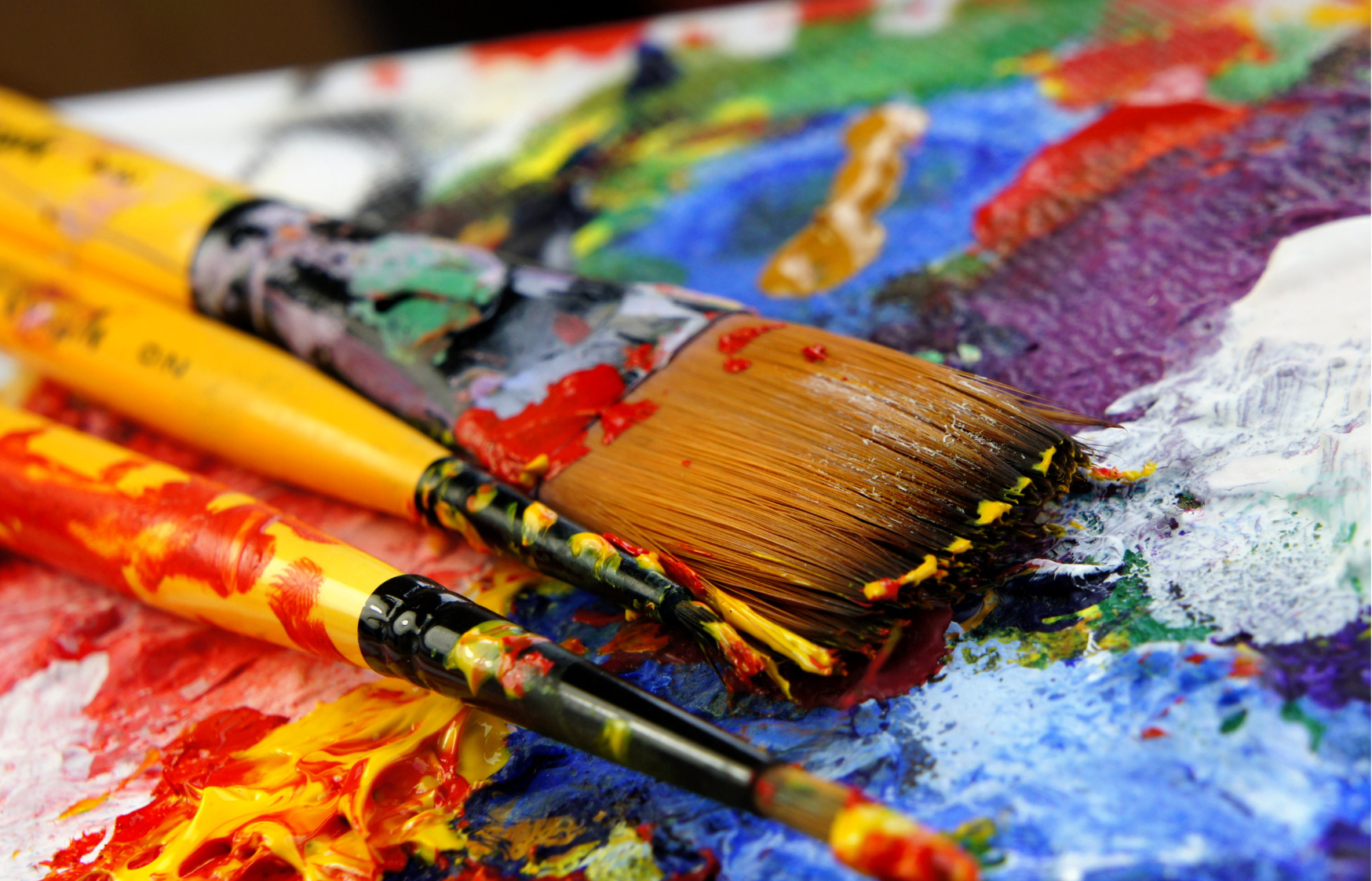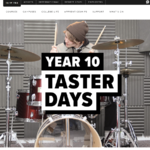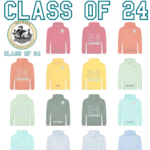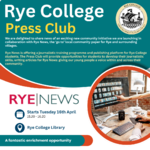Curriculum Overview
At Rye College, we believe that creativity is key to a student’s education and personal development as a means of creating brighter futures for all. The Arts are the intrinsic language of humanity and have helped us to express ourselves, explore the world around us and come together as a community for millennia.
Key Stage 3 Art at Rye College
In Key Stage Three Art at Rye College, we support our students to become confident, independent thinkers, with open minds and open hearts. Students study a wide range of Art and Artists – we look at many different artists, from Henri Matisse and Vincent Van Gogh to Frida Kahlo and Georgia O’Keeffe. We also look globally at other cultures and how different society’s beliefs and structures create different artworks. In addition, we ensure that all students are able to develop their analytical and evaluative writing, critiquing their own and others’ work
Students work in a range of media to develop a multitude of different technical skills, such as drawing, painting, 3D work, ceramics, textiles, collage and printing. Our curriculum is designed to be engaging, exciting, challenging and thought provoking as we are committed to ensuring that student’s develop their social and personal skills as well as their creativity and Art skills in our lessons. Our Art lessons in Key Stage Three prepare students for studying Fine Art, Textiles, Graphic Communications and/or Photography at GCSE.
GCSE Art, Craft and Design
Art, Craft and Design is both a practical and theory-based course. As well as the process of learning to create, students also spend a significant amount of time learning how to analyse and interpret art. They will carry out in depth investigations of artists and/ or art movements. This area of study is extremely important for success at Art GCSE, as students are awarded marks on their ability to demonstrate their understanding of Art and to demonstrate their ability to use areas of art as inspiration in their own work.
We are exceptionally proud about the resources and facilities that we offer at Rye College which allow students to experiment with and refine their skills using a huge array of materials. For example, students may explore painting, drawing, printmaking, textiles, ceramics, sculpture, mixed media, photography and assemblage. Art is a highly conceptual and contextual subject and students will explore a range of topics such as the natural world, portraiture and more. Students will also have the opportunity to develop their own ideas and personal outcomes, this element builds in the later stages of the course.
Studying Art allows students to explore who they are and different ways in which they can express their identity. Taking GCSE Art encourages students to develop their creativity, independence, confidence and self-belief. Students develop skills in team work, problem solving, resilience, resourcefulness, communication and critical thinking. We expose students to a huge array of artists and cultures; encouraging students to develop an open mind and an understanding of different people from a multitude of times, places and backgrounds.
The course structure is as follows:
-
Component 1 - Personal Portfolio 60%
-
Component 2 - Externally Set Assignment 40%
During the course, students will have a range of opportunities provided for them such as workshops run by artists, artist seminars about careers, trips to galleries and other areas to create work on location.
GCSE (Fine) Art
Fine Art is a highly practical course which allows students to develop and explore their own ideas and personal themes. We are exceptionally proud about the resources and facilities that we offer at Rye College which allow students to experiment with and refine their skills is a huge array of materials. Students will explore painting, drawing, printmaking, textiles, ceramics, sculpture, mixed media, found objects, spray painting and more! Art is a highly conceptual and contextual subject and students will explore a range of topics including 'Image and Identity' and 'Who Are You?', as well as personal themes set by the student in response to given broad titles such as 'Fragments' and 'Beginning and/or End'.
Studying Art allows students to explore who they are and different ways in which they can express their identity. Taking GCSE Art encourages students to develop their creativity, independence, confidence and self-belief. Students develop skills in team work, problem solving, resilience, resourcefulness, communication and critical thinking. We expose students to a huge array of artists and cultures; encourage students to develop an open mind and an understanding of different people from a multitude of times, places and backgrounds. Art helps students to develop as people as well as practitioners, and our range of study includes mental health, religion, social media, gender, sex, politics, current affairs, history, philosophy, race, anatomy and more!
The course structure is as follows:
-
Component 1 - Personal Portfolio 60%
-
Component 2 - Externally Set Assignment 40%
During the course, students will have many extra-curricular opportunities such as trips to London galleries to gather primary research, life drawing classes, carnival makes, teaching primary school children and working with the local community.
GCSE Photographic Art
Photographic Art is both a practical and theory-based course. As well as the process of learning to create art and take photos, students also spend a significant amount of time learning how to analyse and interpret art. They will carry out in depth investigations of artists and/ or art movements. This area of study is extremely important for success at Art and Design (Photography) GCSE, as students are awarded marks on their ability to demonstrate their understanding of Art and to demonstrate their ability to use areas of art as inspiration in their own work.
Photography may be defined as the creative journey through the process of lens- and light-based media. This could include work created using film, video, digital imaging or light sensitive materials. With the developments of new affordable lens-based technologies, students should attempt to use the photographic mediums to explore and create a body of work, which develops and refines both the process and the concept. Students will also understand that Photography practitioners may work to client commissions within a commercial photography studio, or work as freelance photographers. They will need photo manipulation and graphic design skills, and good communication skills in-order-to liaise with clients and to promote themselves as photographers.
The Photographic Art course at Rye College is broad and varied. Students will use a variety of media, as they use the idea of a photo as a starting point. For example, they may use their photo as a base for printmaking or stencil cutting. They may add different materials to their printed photograph such as embroidery and sewing, collage and paint. They may manipulate the printed photo by use of sculpting the paper, slicing and folding it.
The course also aims to prepare students for the ever-changing world of digital technology that exists within many creative careers today. Students will use photo editing software to enhance, manipulate and create digital artwork from. For example, they may create patterns, and digitally paint and draw over or into their photo.
Students build their visual recording skills through a range of projects. This is will include projects along the themes of Portraiture, Surrealism, Colour and more.
The course structure is as follows:
-
Component 1 - Personal Portfolio 60%
-
Component 2 - Externally Set Assignment 40%
During the course, students will have a range of opportunities provided for them such as workshops run by artists, artist seminars about careers, trips to galleries and other areas to take photos on location.
Knowledge Summaries - Art
Progression Routes
Art, Craft and Design can be used as a stepping stone to further courses and careers in Art and Design. Career opportunities are broad, but could include: Graphic Design, Animation, Hairdressing, Make up Art, Weaving, Jewelry making, Illustration, Textile Design, Ceramics, Printmaking, Fine Art, Art history, Art Gallery Curating, Tattoo Art, Costume Design, Prop Design.
Art and Design qualification is an ideal starting point for a student aiming to pursue a career in the creative industries. Students can progress on to a range of Arts courses, including Arts A-Levels and BTEC Diplomas. Many of our students then progress on to Foundation Art and University courses. We currently have past students studying at Goldsmiths, Central St Martins, Camberwell, UAL and the London College of Fashion. Creative thinking and problem solving are highly valued in the current economic climate and Art provides many transferable skills which help students to access other courses.
From a GCSE Photography course, students can progress onto an ‘A’ Level in Photography or a Level 3 Diploma in Photography. A GCSE in photography prepares students to think visually and work independently, and can lead to a career in photography, media or film. Photographic Art can be used as a stepping stone to further courses and careers in Art and Design. Career opportunities will be very similar to Art, Craft and Design GCSE, but may also include: Freelance Photography, Documentary Photography, Fine Art Photography, Computer Game Design, Forensic Photography, Fashion Photography, Advertising, Graphic Design, Web Design, Film.
.jpg)
_(1)_(1).jpg)




